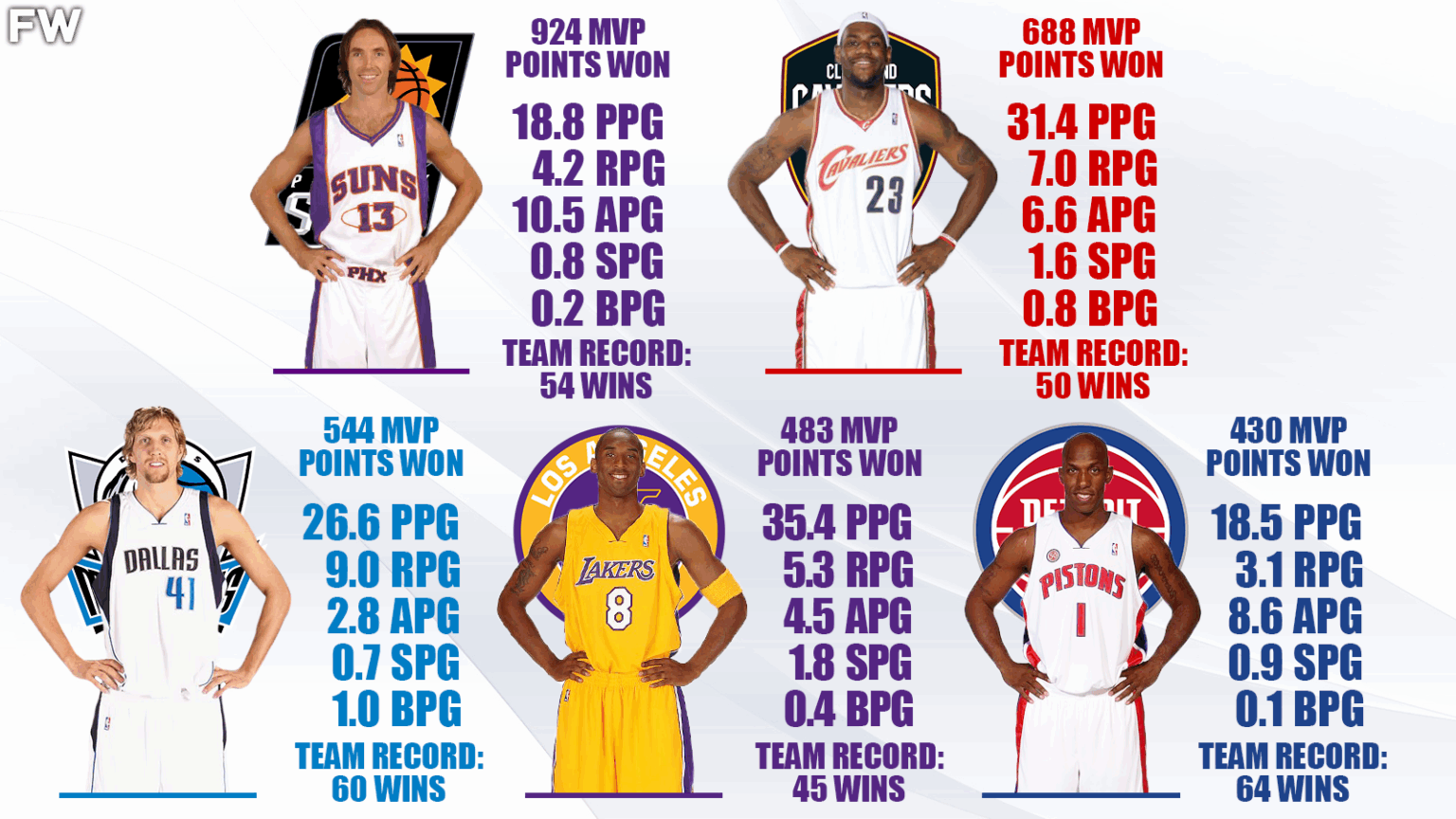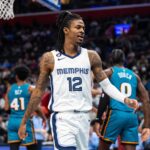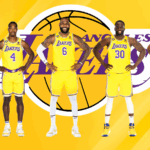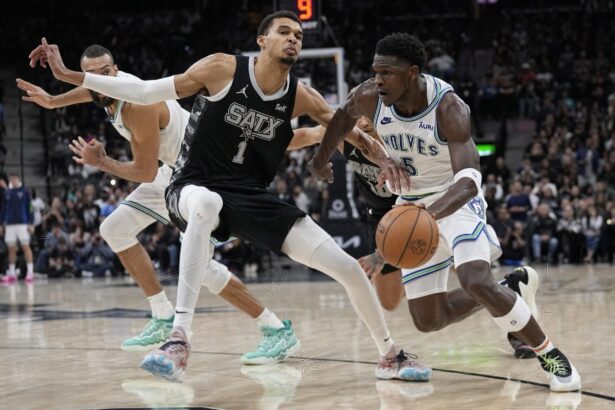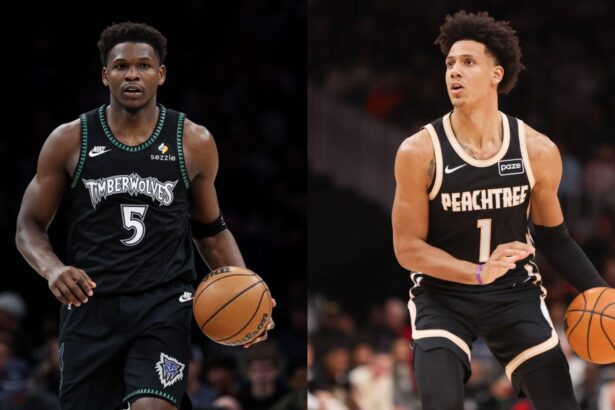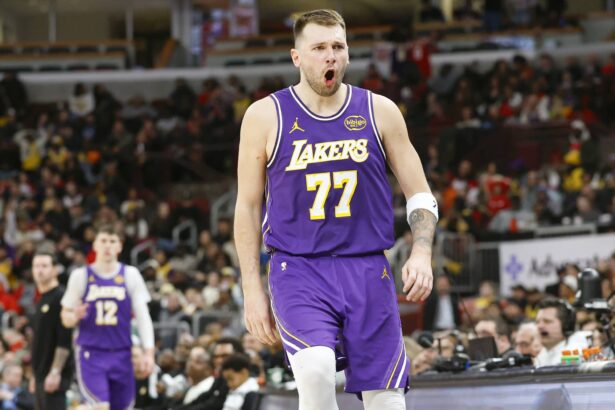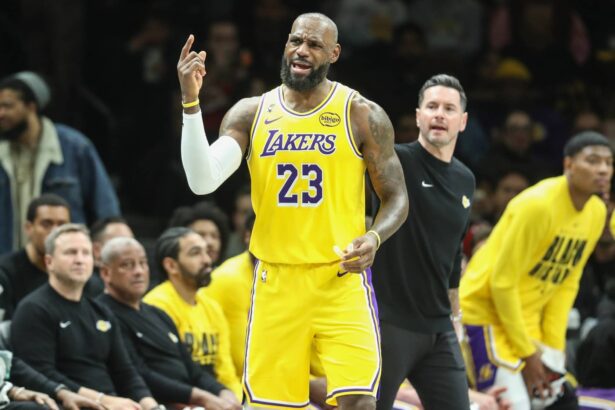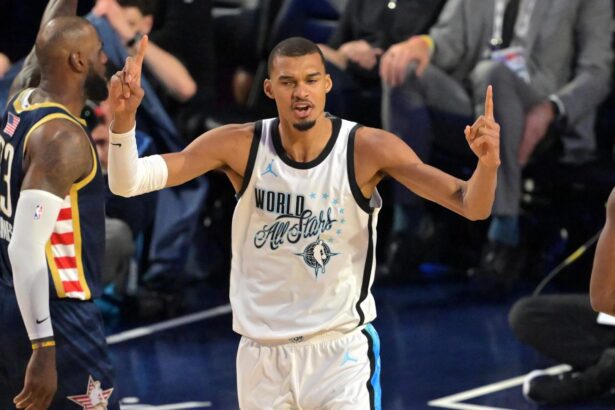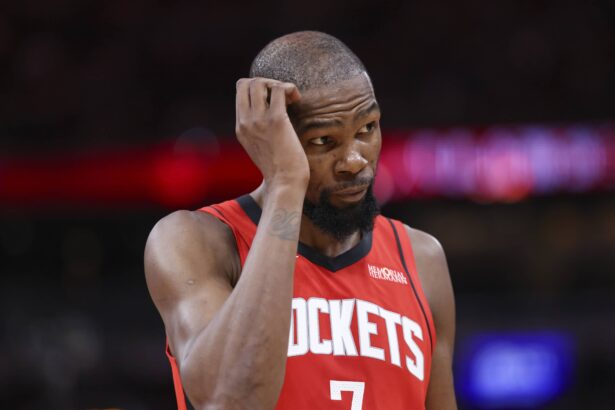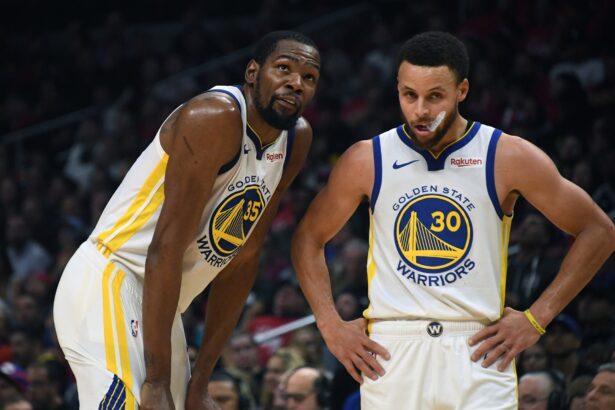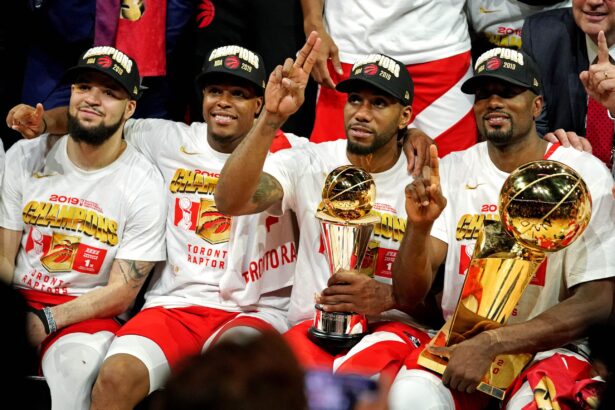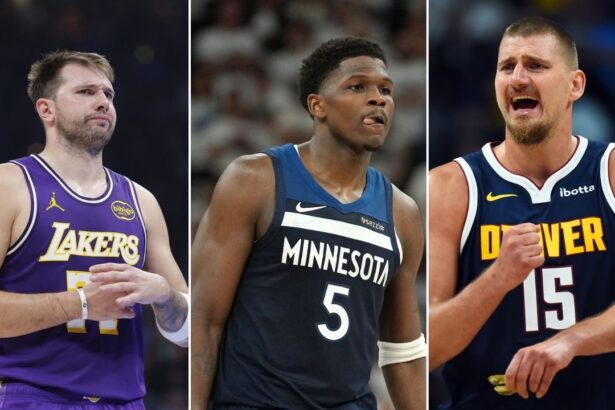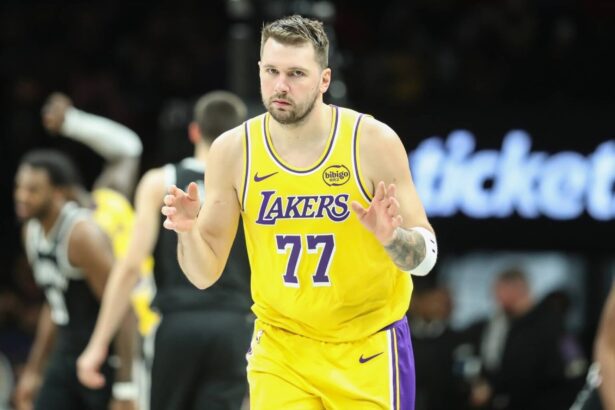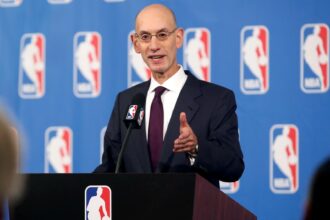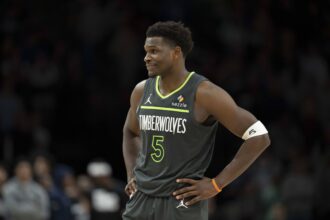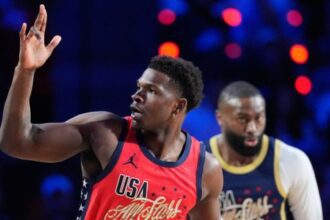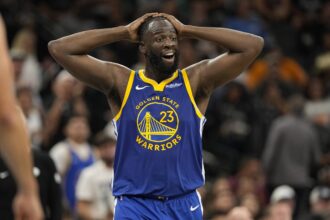The 60th NBA season featured a ton of ups and downs like any other regular season. Every year, an award is given to the top player. The Most Valuable Player was a tight race that featured a ton of superstar names in the mix. To put it into perspective, the two teams that won the most games didn’t have a finisher in the top three.
- 10T. Shawn Marion – 1 MVP Point
- 10T. Allen Iverson – 1 MVP Point
- 9. Tony Parker – 9 MVP Points
- 8. Tim Duncan – 33 MVP Points
- 7. Elton Brand – 50 MVP Points
- 6. Dwyane Wade – 87 MVP Points
- 5. Chauncey Billups – 430 MVP Points
- 4. Kobe Bryant – 483 MVP Points
- 3. Dirk Nowitzki – 544 MVP Points
- 2. LeBron James – 688 MVP Points
- 1. Steve Nash – 924 MVP Points
Both the Detroit Pistons and the San Antonio Spurs won the most games in their respective conferences. Even though three combined players from the team finished in the top 10, neither was a top-3 vote-getter. That goes the same for the player that won the scoring race. Instead, a rare feat from one of the best point guards ever playing the game stole the show and the MVP Award.
These are the top 10 NBA players in the 2005-06 MVP voting.
10T. Shawn Marion – 1 MVP Point
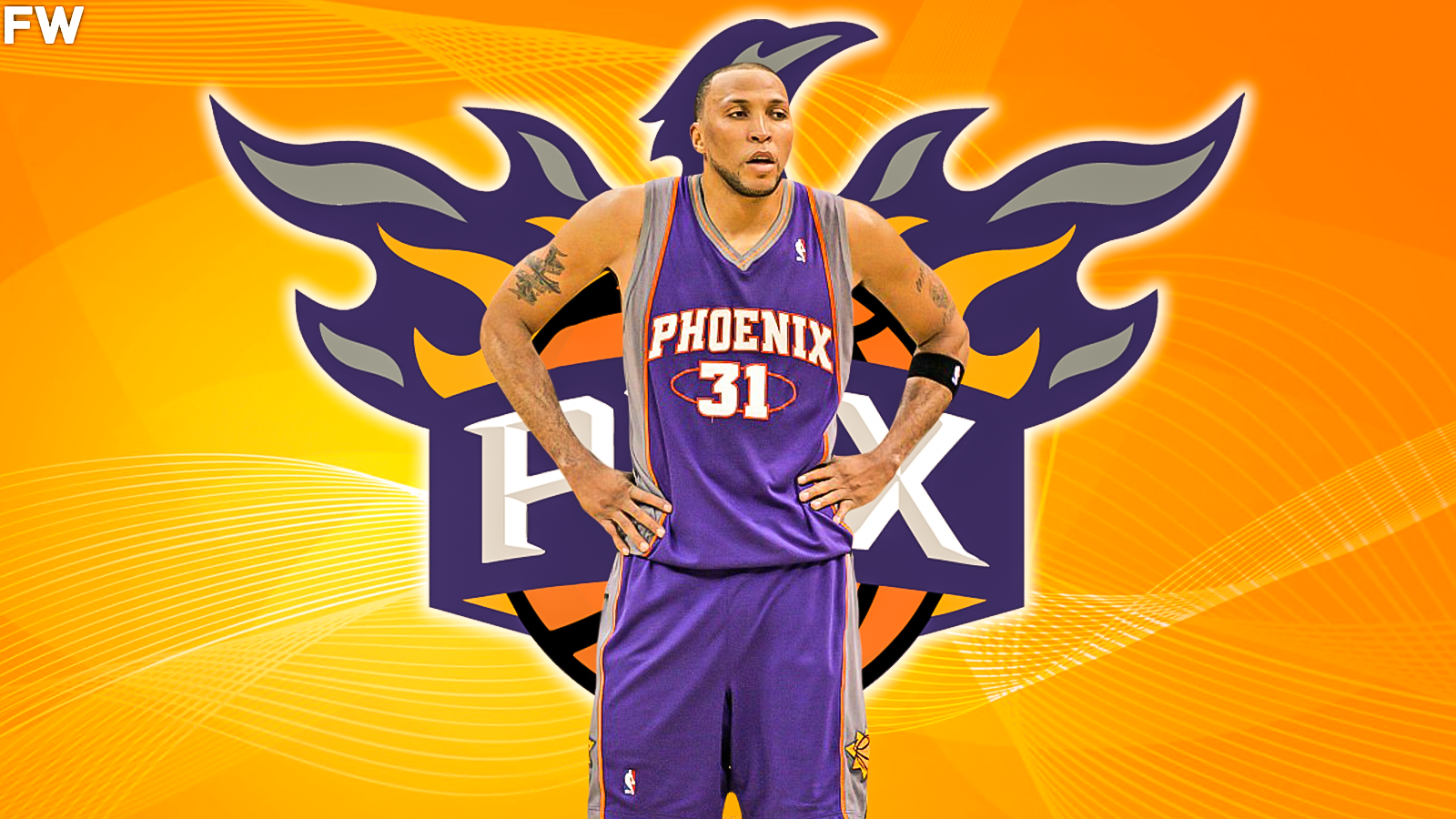
2005-06 Stats: 21.8 PPG, 11.8 RPG, 1.8 APG, 2.0 SPG, 1.7 BPG
Team Record: 54 Wins, 2nd In The Western Conference
Easily one of the top two-way players in the league this season, Marion’s efforts were rewarded with one MVP vote. Marion scored the 13th most points, and his 21.8 points per game were 15th. As for his rebounding, Marion had the third-best average, including the third-most defensive rebounds (710). His 249 offensive rebounds were also sixth.
His 2.0 steals translated into 160 total steals. He was one steal off Gilbert Arenas from finishing second. The 137 blocks Marion recorded were 12th overall, and his average was 17th. All of that included shooting 52.5% from the field which was 11th best in the league. When it came to a complete season, Marion gave the Suns just about everything.
10T. Allen Iverson – 1 MVP Point
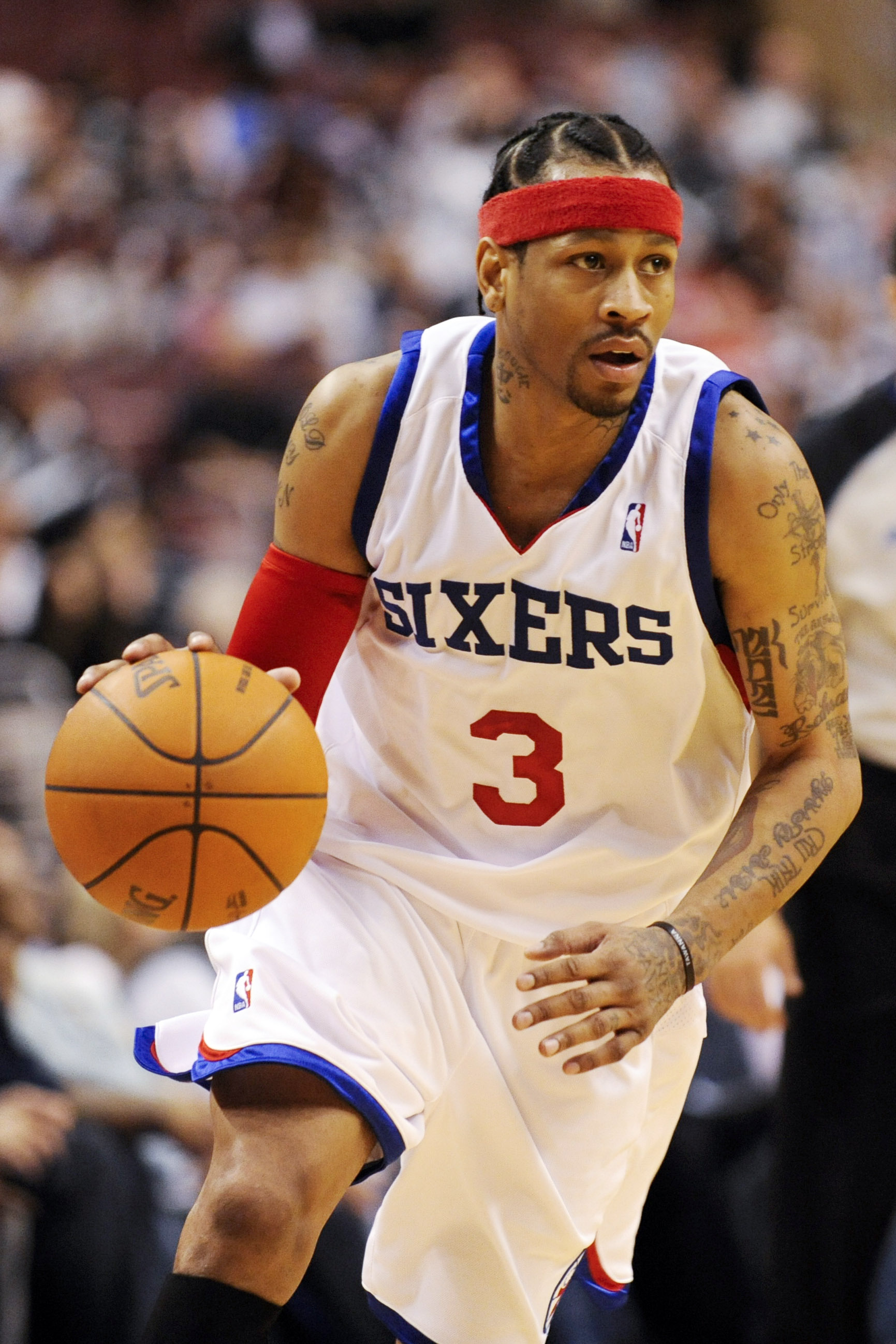
2005-06 Stats: 33.0 PPG, 3.2 RPG, 7.4 APG, 1.9 SPG, 0.1 BPG
Team Record: 38-44, 9th In The Eastern Conference
The team’s overall play hurt Iverson’s chances of landing the MVP Award. The 76ers missed the playoffs with a record under .500. However, Iverson’s scoring kept the team into consideration. Iverson scored the third-most points, and he was one of three players to average at least 30 points per game. His 33.0 points per game were second in the league.
In addition, Iverson finished ninth in total assists and steals, while his steals per game was seventh, and his assists were eighth in the league. Iverson was one of three players to score at least 800 field goals in the league. His 815 field goals were third. Iverson led the league in free throw attempts and minutes per game (43.1).
9. Tony Parker – 9 MVP Points
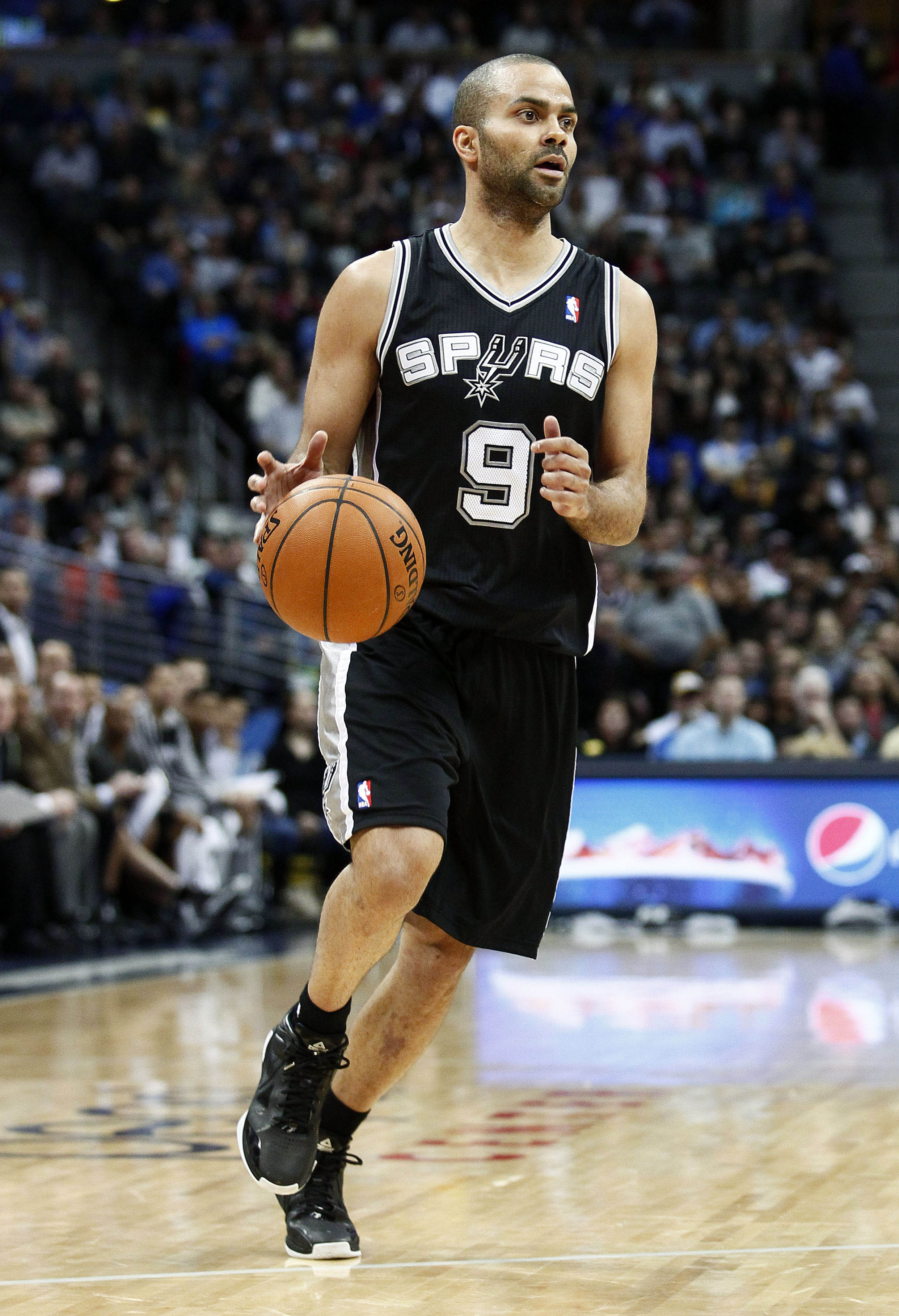
2005-06 Stats: 18.9 PPG, 3.3 RPG, 5.8 APG, 1.0 SPG, 0.1 BPG
Team Record: 63 Wins, 1st In The Western Conference
The Spurs led the league in wins, so their personnel should have been looked at. While Parker’s stat line was not eye-popping, he was the point guard on a team that won 63 wins. Parker tied for 18th in total assists and just clipped the top 20 in assists per game.
The stat that pops out the most is that Parker shot 54.8% from the field. That was the third-best percentage, trailing only Eddy Curry and Shaquille O’Neal. He was the only guard in the top 10 shooting from the field.
8. Tim Duncan – 33 MVP Points
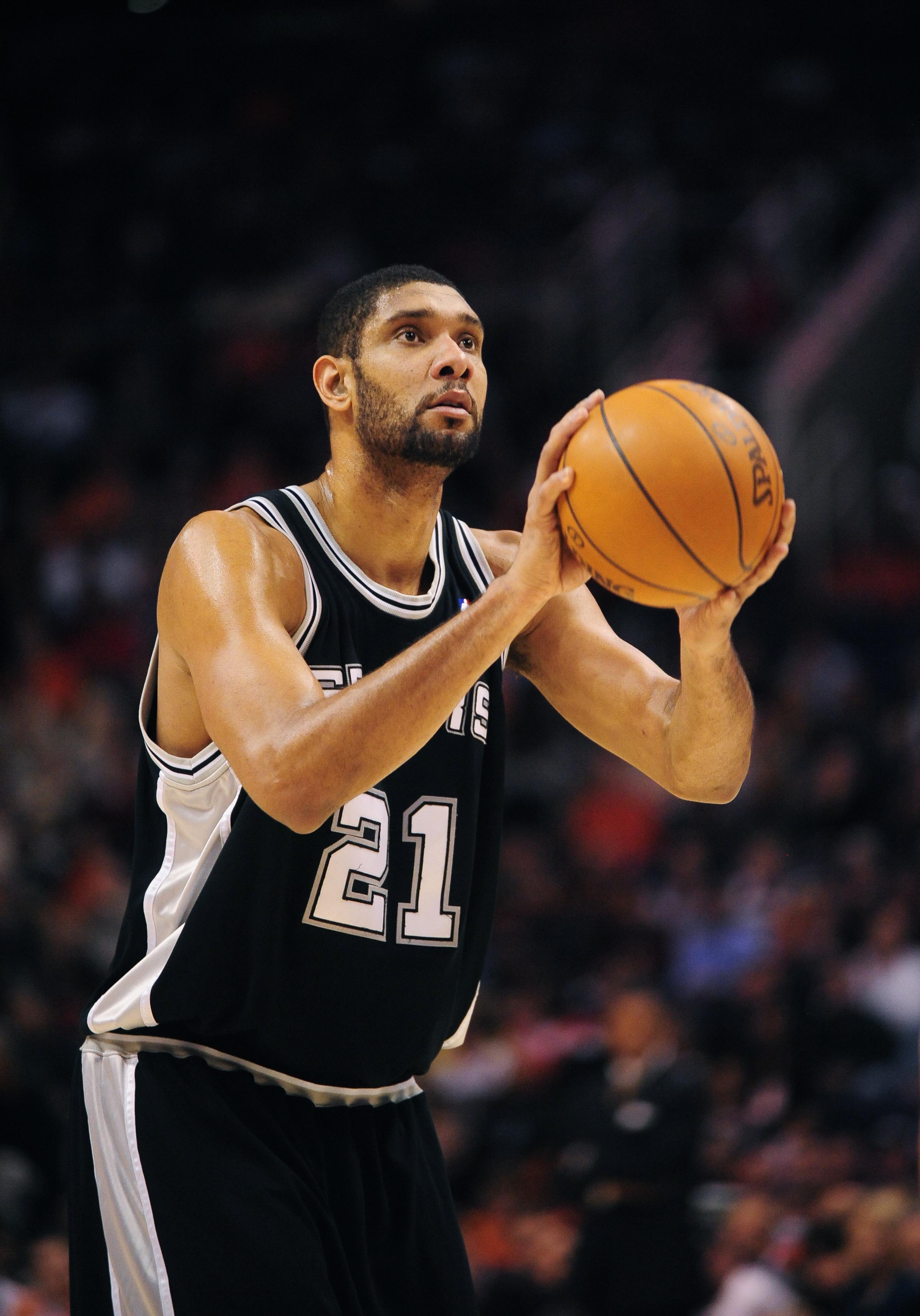
2005-06 Stats: 18.6 PPG, 11.0 RPG, 3.2 APG, 0.9 SPG, 2.0 BPG
Team Record: 63 Wins, 1st In The Western Conference
Duncan was the back-to-back winner in 2002 and 2003. He remained a top player in the league even though he did not win the award this season. Duncan’s rebounding remained supreme. He was 10th in offensive rebounds, fifth in total rebounds and rebounds per game, and fourth in defensive rebounds. Defensively, Duncan was seventh in blocks and 12th in blocks per game. Duncan also led the league in defensive win shares and defensive rating.
Again, the Spurs were the top team in the NBA during the regular season. The one-two punch of Parker and Duncan made that happen. The Spurs were a complete team and didn’t have one player that stood out. That is why both players finished near the back end of the MVP voting.
7. Elton Brand – 50 MVP Points
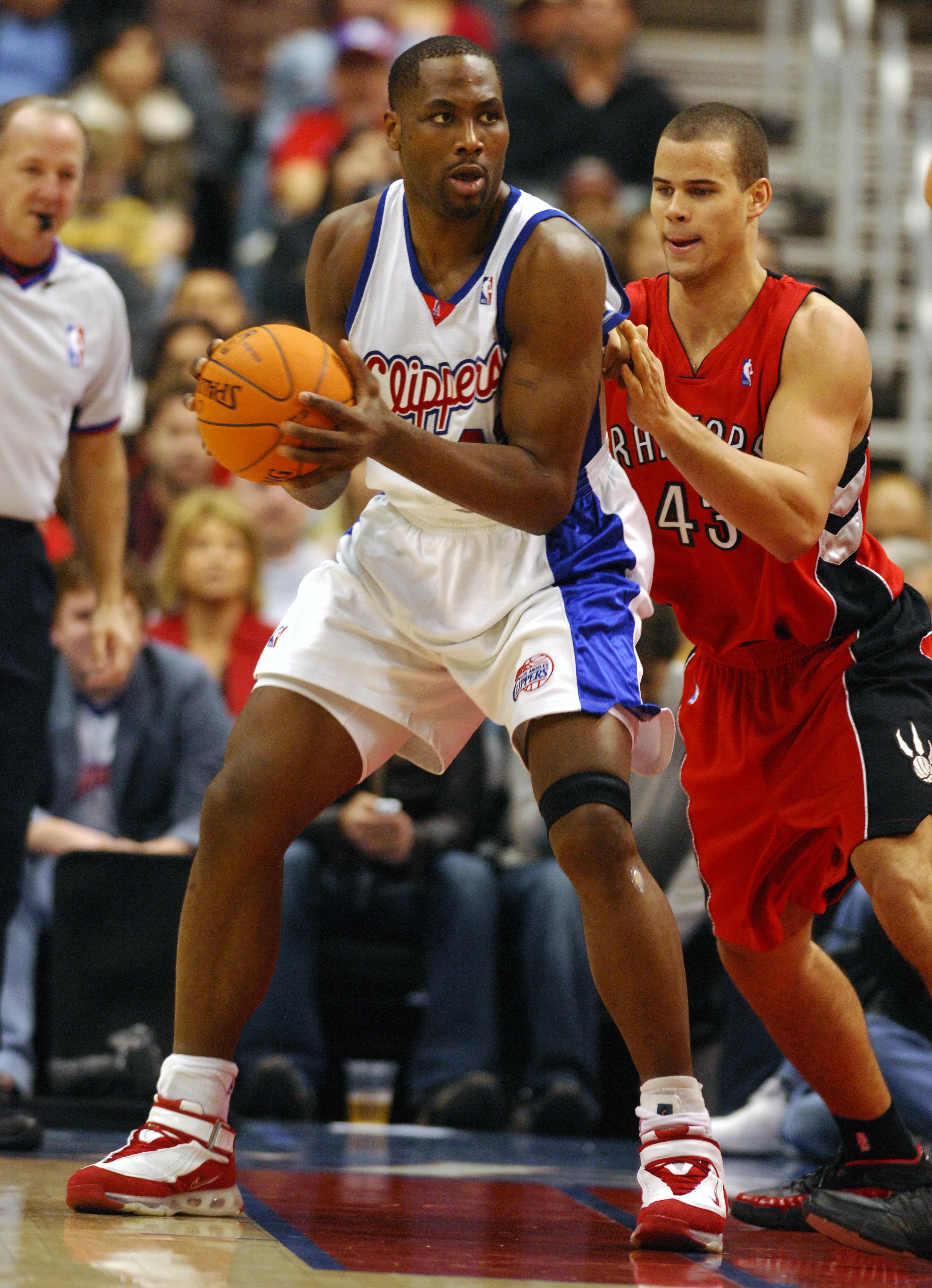
2005-06 Stats: 24.7 PPG, 10.0 RPG, 2.6 APG, 1.0 SPG, 2.5 BPG
Team Record: 47 Wins, 6th In The Western Conference
During the 2000s, the Clippers were not the Clippers they have been for the last 10 years. This team enjoyed a competitive year with a healthy Elton Brand leading the way. Brand scored the 11th most points and was 11th in the scoring race. Brand was 10 rebounds away from being the sixth player to secure at least 800 rebounds. Brand was seventh in the rebounding race and ninth in offensive rebounds.
Defensively, Brand joined Andrei Kirilenko and Josh Smith as the only players to secure at least 200 blocks in the season. His 2.5 blocks were fifth in the league. Brand tied with Carmelo Anthony for the fourth-most field goals, trailing only Kobe Bryant, LeBron James, and Allen Iverson. One member of the voting panel gave Brand a single first-place MVP vote.
6. Dwyane Wade – 87 MVP Points
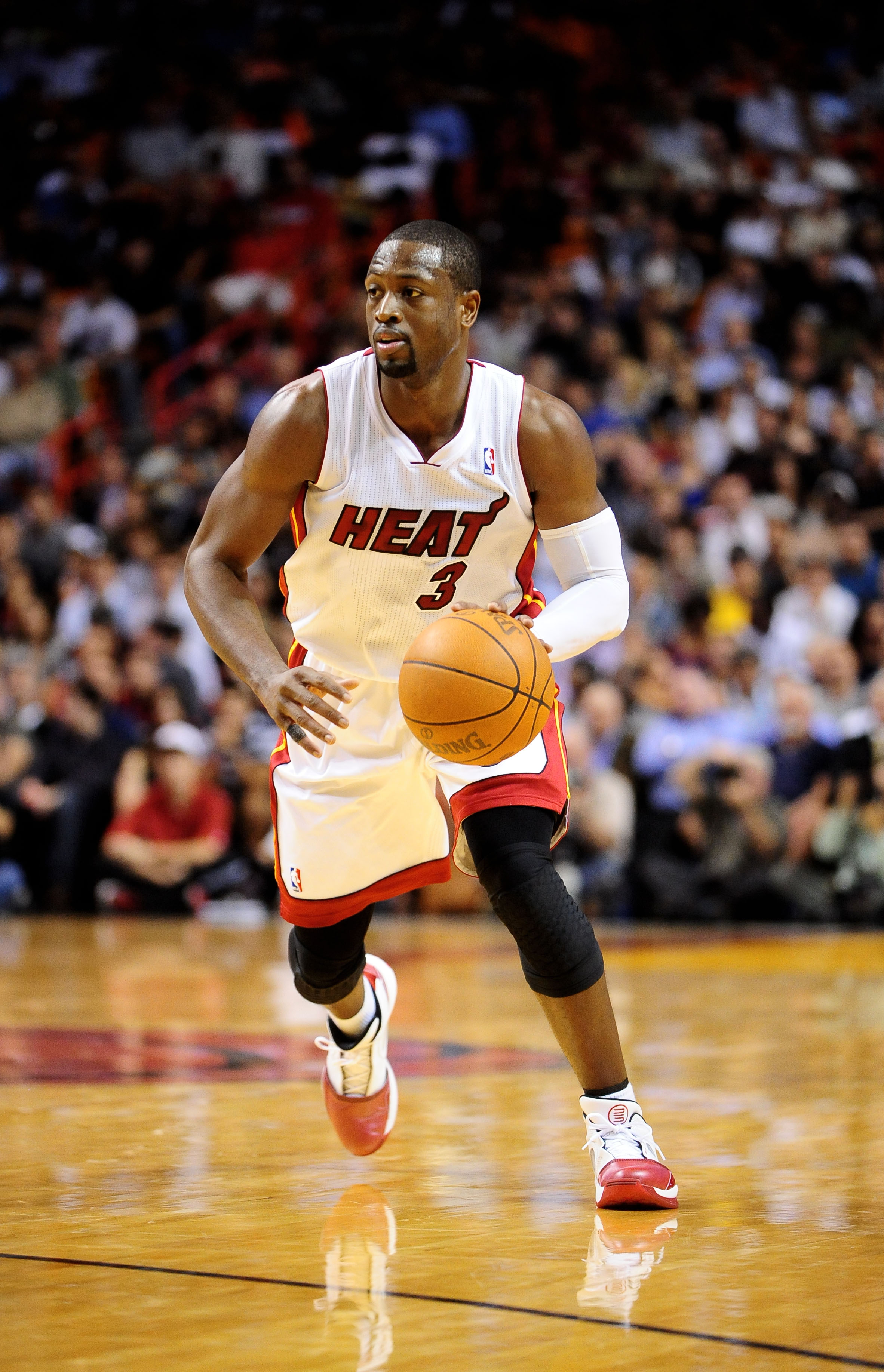
2005-06 Stats: 27.2 PPG, 5.7 RPG, 6.7 APG, 1.9 SPG, 0.8 BPG
Team Record: 52 Wins, 2nd In The Eastern Conference
In the end, Wade didn’t get the MVP Award, but he won the award that everyone likely wished they had. Wade was named the Finals MVP after leading the Miami Heat to the 2006 championship. In the regular season, he had a solid season, scoring the eighth most points and finishing fifth in the scoring race.
Wade also finished 11th in assists and sixth in steals. Regarded as one of the best two-way players ever, he put that on display early into his career. Wade didn’t get any first-place MVP votes though but still managed to finish above Brand in the MVP race.
5. Chauncey Billups – 430 MVP Points
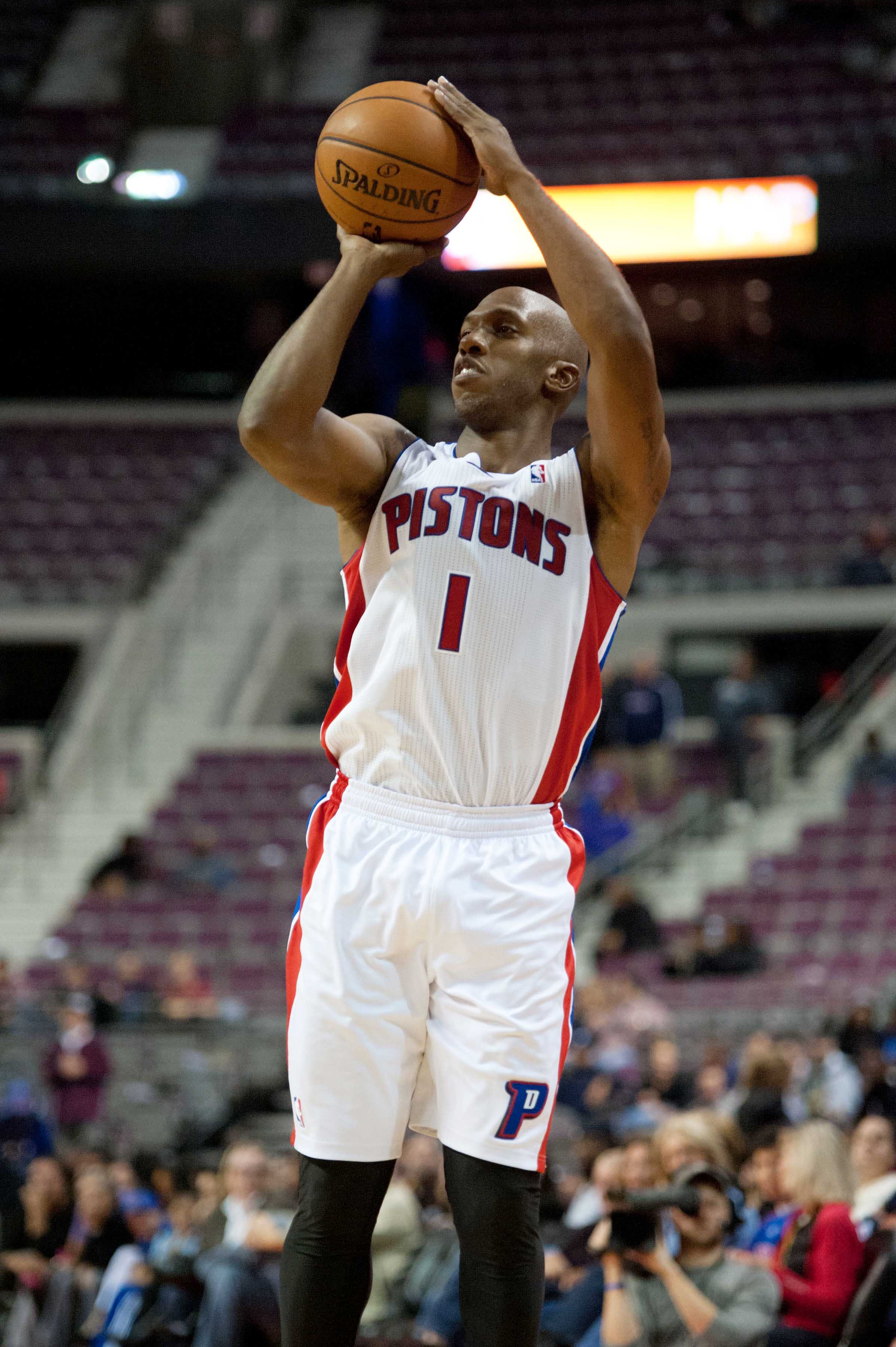
2005-06 Stats: 18.5 PPG, 3.1 RPG, 8.6 APG, 0.9 SPG, 0.1 BPG
Team Record: 64 Wins, 1st In The Eastern Conference
If you looked at the league leaders, you weren’t going to see Billups’ name all over the place. From a point guard standpoint, he might have had the second-best year. Billups had the second-most assists and was fourth in assists per game. His three-point shooting was also top five, where he made 184 treys for the season, trailing the likes of Ray Allen, Gilbert Arena, Raja Bell, and Mike Bibby.
The Pistons were the best overall team in the Eastern Conference. While the Pistons were a solid team, Billups was the floor general. Billups got more respect than members of the Spurs, who also had 60 wins on the season. Billups received 15 first-place votes from the media.
4. Kobe Bryant – 483 MVP Points
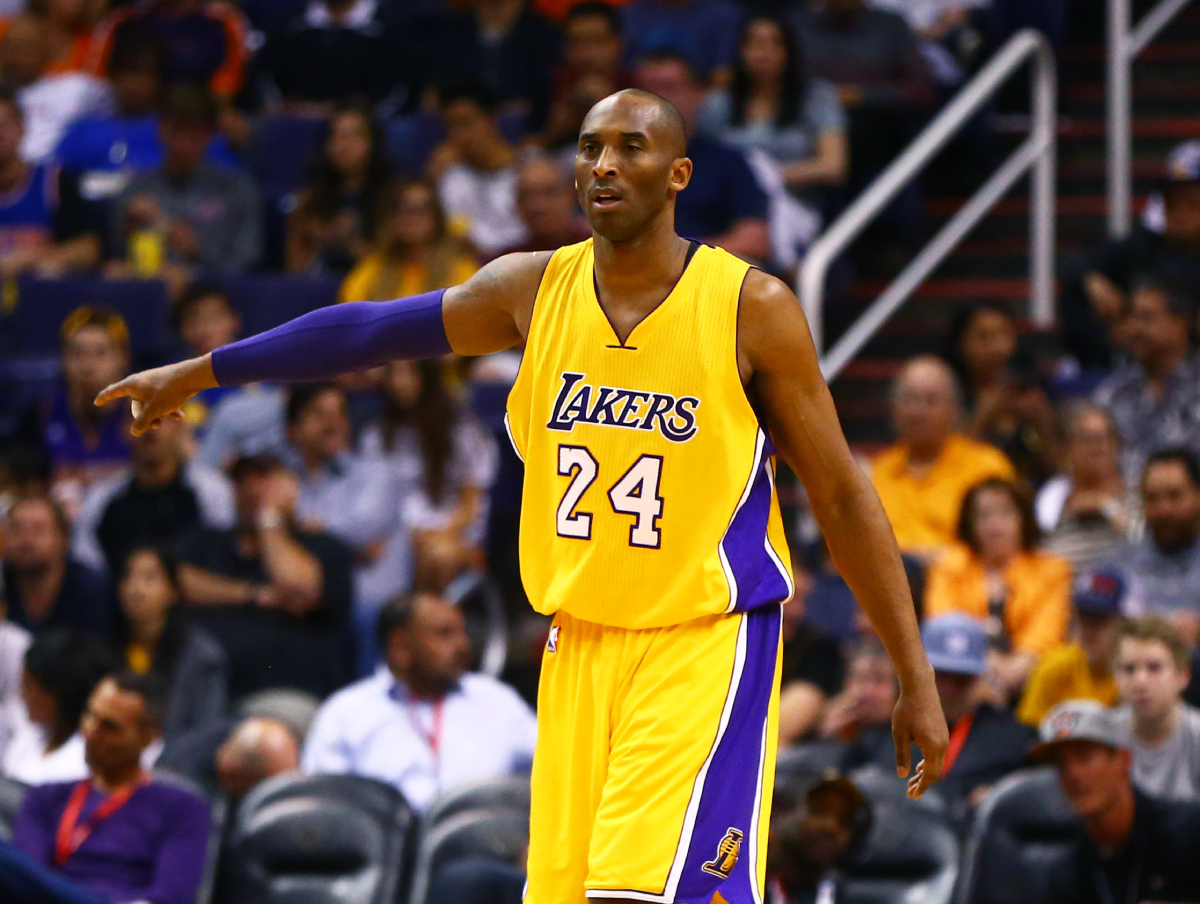
2005-06 Stats: 35.4 PPG, 5.3 RPG, 4.5 APG, 1.8 SPG, 0.4 BPG
Team Record: 45 Wins, 7th In The Western Conference
Bryant’s situation was similar to Iverson, but the Lakers had a better overall experience. The team qualified for the playoffs because Bryant carried the team into the postseason. Bryant won the scoring title and scored almost 400 more points than LeBron. Bryant’s 2,832 total points led the league, as did his 35.4 points per game. Bryant was also on the offense, scoring the most field goals (978), field goal attempts (2,173), 2-point field goals (798), and 2-point field goal attempts (1,655). With all those shots, he led the league in missed field goals, missing 1,195 shots. Bryant also led the league in free throws (696).
Bryant led the league in usage percentage. He was used 38.7% of the time on offense. Iverson was second to Bryant at 35.8%. Bryant was nearly used on two out of five possessions. Had the Lakers finished better as a team, Bryant might have been closer to an MVP. Instead, he had the second-most first-place votes (22) but was fourth overall in points.
3. Dirk Nowitzki – 544 MVP Points
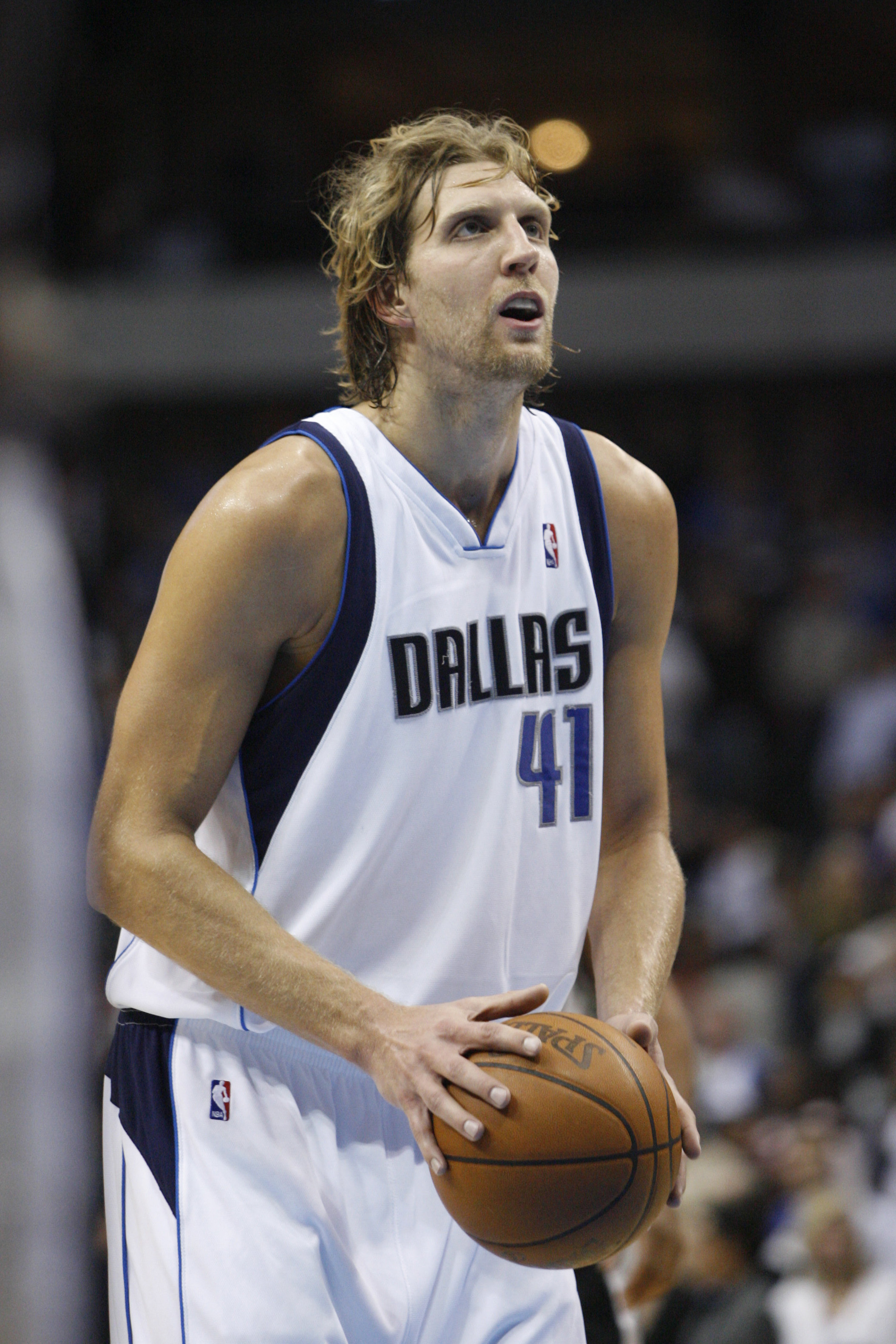
2005-06 Stats: 26.6 PPG, 9.0 RPG, 2.8 APG, 0.7 SPG, 1.0 BPG
Team Record: 60 Wins, 4th In The Western Conference
The Mavericks were the No. 4 seed in the West because the playoff seeding was based on divisional winners as the top three seeds. Even though the Mavericks won the second-most games, the team finished second to the Spurs in the division. Nowitzki was one year away from winning the MVP but added this top-3 performance to his resume for this season. Nowitzki scored the fifth-most points and was seventh in the scoring race. He also finished in the top-15 for rebounds but specifically recorded the sixth-most defensive rebounds.
Offensively, Nowitzki scored the sixth-most field goals and eighth-most free throws. From an efficiency standpoint, his advanced stats are what helped him land third in the MVP voting and 14 first-place votes. Nowitzki led the league in player efficiency rating (28.1), win shares (17.7), offensive win shares (13.5), win shares per 48 minutes (.275), and offensive box plus/minus (7.8). Unfortunately for Nowitzki, he missed out on the MVP and the NBA championship as his Mavericks lost in the NBA Finals.
2. LeBron James – 688 MVP Points
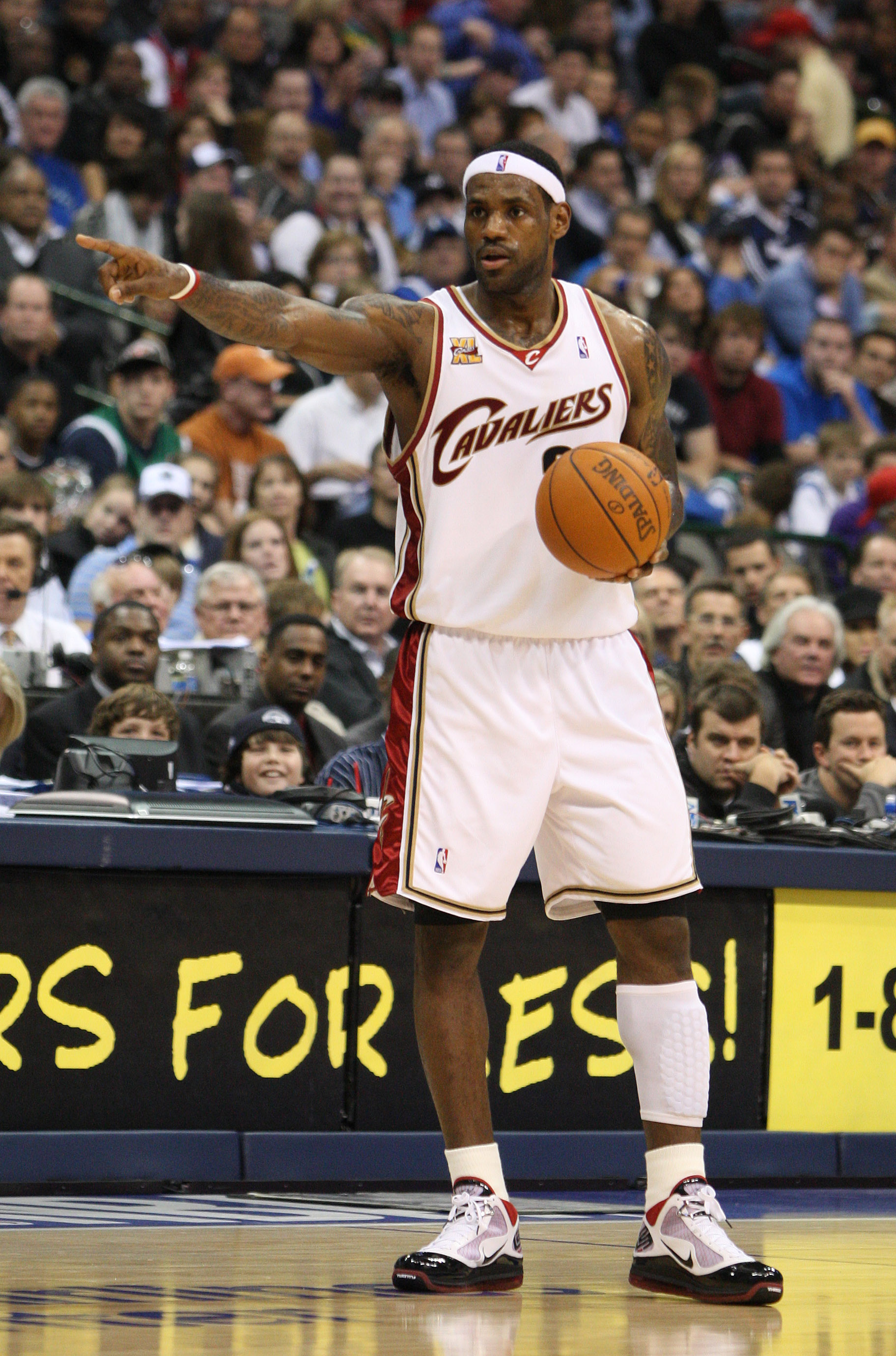
2005-06 Stats: 31.4 PPG, 7.0 RPG, 6.6 APG, 1.6 SPG, 0.8 BPG
Team Record: 50 Wins, 4th In The Eastern Conference
What LeBron did this season was seen as the best. Some believe that James should have been the true MVP this season. Offensively and defensively, James was at the top of his game. James scored the second-most points and was third in the scoring race. He scored the second-most field goals (875) and led the league in value over a replacement player (9.41). On top of that, the Cavaliers rose to 50 wins on the season, with James leading the way.
James was 21 years old at the time and a rising star in the league. He earned 16 first-place votes for his success. The Cavaliers were slowly growing into a competitive team in the Eastern Conference. Given that the team won 42 games the previous season, combined with the 30-plus points per game, James could have won the MVP. Instead, a rare feat by one of the best point guards just beat him out.
1. Steve Nash – 924 MVP Points
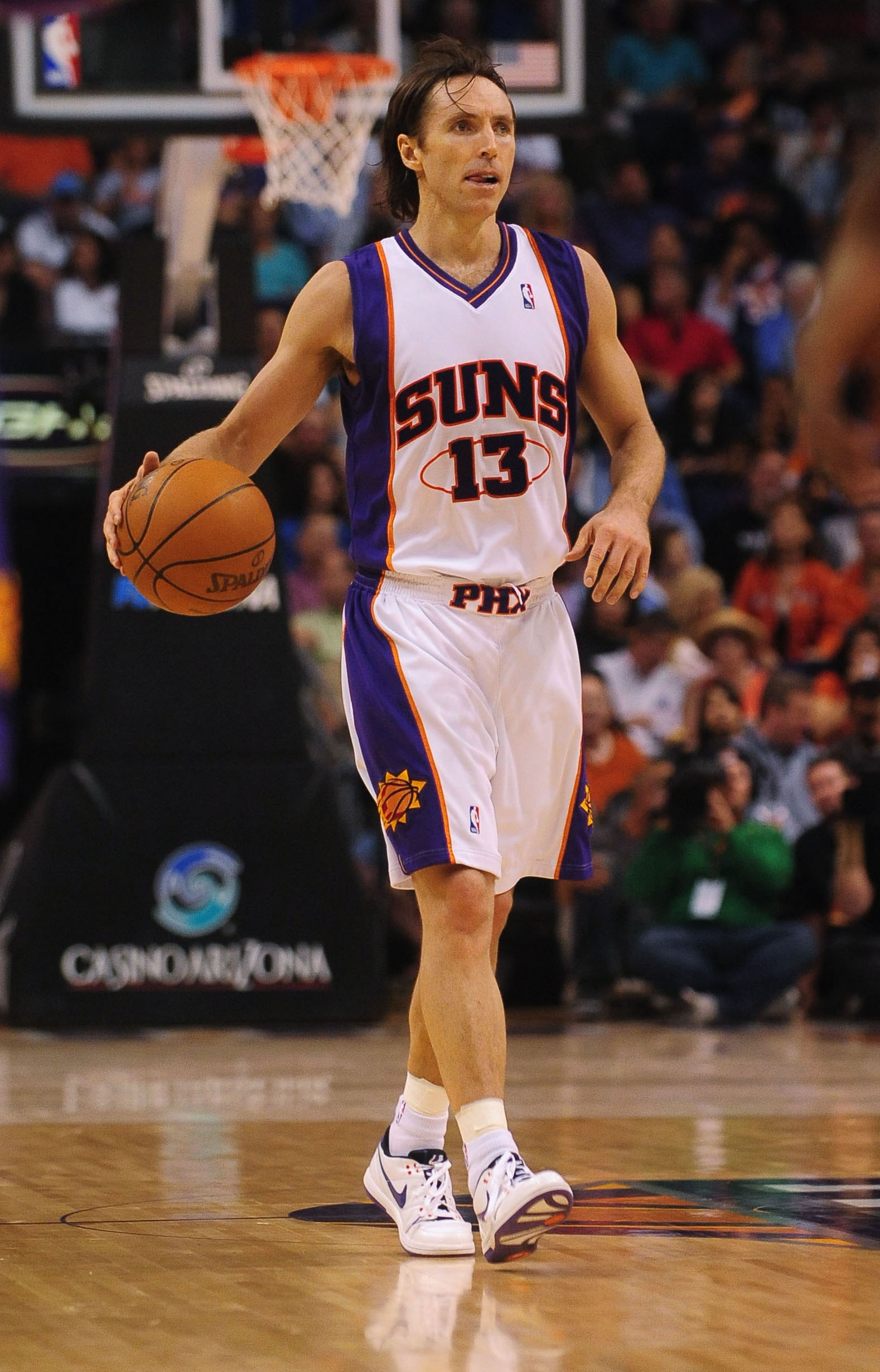
2005-06 Stats: 18.8 PPG, 4.2 RPG, 10.5 APG, 0.8 SPG, 0.2 BPG
Team Record: 54 Wins, 2nd In The Western Conference
Making the 50-40-90 Club was not something that happened very often. At the time, only Larry Bird (two times), Mark Price, and Reggie Miller had ever shot 50% from the field, 40% from three-point range, and 90% from the free throw line. Miller’s appearance came during the 1993-94 season. Given the rarity of the situation, combined with leading the league in assists, the panel was mesmerized as Nash received 57 of the first-place votes.
Nash shot 51.2% from the field, 43.9% from three-point range, and 92.1% from the free-throw line. Nash led the league in free-throw percentage, as well as true shooting percentage (63.2%). His 826 total assists were over 100 more than Billups. His 10.5 assists per game featured the only double-digit assist average in the league. Nash led the league in assist percentage, assisting on 44.4% of the plays. While there were several worthy contenders, Nash was truly the most valuable player in the league.
We sincerely appreciate and respect you as a reader of our site. It would help us a lot if you follow us on Google News because of the latest update.
Thanks for following us. We really appreciate your support.

